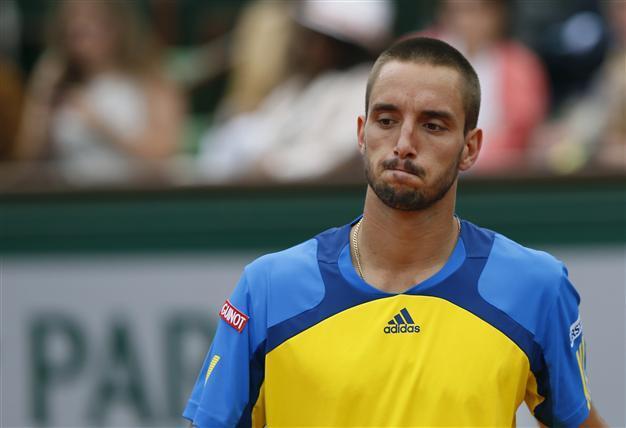Players defend tennis in wake of doping cases
WASHINGTON - Agence France-Presse

A file picture taken on June 2, 2013 shows Serbia's Viktor Troicki reacting during a French tennis Open round of 16 match at the Roland Garros stadium in Paris. AFP Photo
ATP players defended their sport and the tour's updating of anti-doping information on Wednesday in the wake of drugs cases involving 15th-ranked Croatia's Marin Cilic and Serbian Viktor Troicki.
"Tennis does a good job of testing from my experience," said 20th-ranked John Isner, the American number one. "Tennis as a whole, I do feel, our sport is clean." The topic has drawn attention after Troicki was banned for 18 months after allegedly refusing to submit a blood sample to a tester and Cilic reportedly tested positive at an April event in Munich.
Troicki, ranked 53rd, said he was assured he could skip the blood test without punishment.
Uncertainty about how well informed players are regarding banned substances and the testing requirements then became the issue.
"Our doping system is extremely tough," said American Mardy Fish.
"We do get updates. We get a lot of information. There are things constantly coming through e-mails about player regulations, regulated substances." Asked if he thought players were not well informed about doping regulations, Fish said, "That wouldn't be my experience, no. I like to take that pretty seriously." Isner said the topic has not resonated with players, saying, "As far as talk in the locker room, there hasn't been any at all.
"These situations are unfortunate. I don't know what to think of it. I will side on their (players') side. We'll see how it plays out." Isner said he was once random tested twice in the same morning.
"To hear the ATP or WADA doesn't educate enough, I don't think that's the case," Isner said. "I think the ATP does a good job informing us what we can and can't take." Fish admitted that not all the players know exactly why they cannot take a certain medication to combat an illness, but they are aware of the risks for ingesting something questionable.
"There are a lot of things that we can't take that we don't understand but might mask something," Fish said. "My trainer and I take it very seriously. I ask him about everything that goes in." Isner said he hoped the ATP would consider adopting the biological passport, a system where a players' basic body chemistry is recorded and deviations from the norm spark doping concerns.
"I would hope they adopt the biological passport," he said. "I'm a big fan." Australian Bernard Tomic found the latest doping situations odd.
"It's very strange how it can happen," Tomic said. "As a player myself, it's very weird and strange to see these things happen. It's strange, but it's their issue."
